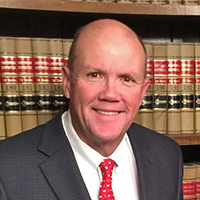Chancellor Estate Lawyer, Alabama
William B. Matthews
✓ VERIFIEDDivorce & Family Law, Criminal, Accident & Injury, Business, Estate
William Matthews, Jr. is a practicing lawyer in the state of Alabama specializing in Divorce & Family Law; Criminal; Accident & Injury; Bankruptcy & D... (more)
Richard W Whittaker
Real Estate, Wills & Probate, Insurance, Corporate
Status: In Good Standing Licensed: 53 Years
Charles W Blakeney
Social Security, Trusts, Divorce & Family Law, Criminal
Status: In Good Standing Licensed: 33 Years
Anthony Livingston
Real Estate, Wills & Probate, Trusts, Divorce & Family Law
Status: In Good Standing Licensed: 42 Years


